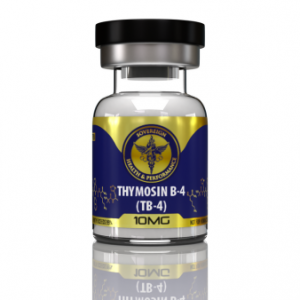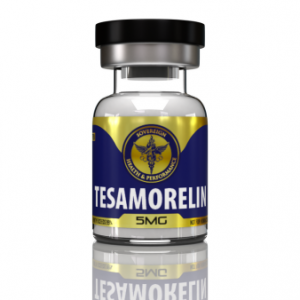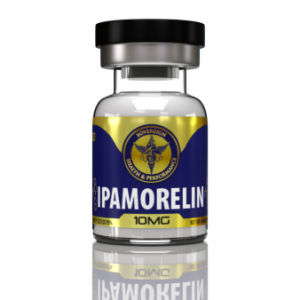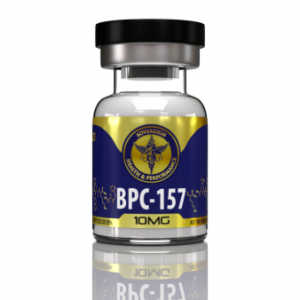Transform Your Life with “75 Hard” and Peptides: What the research says for Middle-Aged Individuals Looking to Shed Weight


Embarking on a fitness journey can be daunting, especially for those who have struggled with weight and fitness issues for years. Maybe you are shaking off a sugar coma and sporting a new spare tire courtesy of too many free treats in the company breakroom. Or the person looking back at you from the mirror suddenly becomes a middle-aged person looking to shed pounds, gain strength, and enhance overall well-being. Whatever the case, the “75 Hard” program could be the transformative challenge you need. This article will not only outline how “75 Hard” can help you achieve your fitness goals but also how various peptides can assist in weight loss and recovery, supported by scientific research.
Table of Contents
What is “75 Hard”?
“75 Hard” is a mental toughness program designed by Andy Frisella. It involves adhering to a strict regimen for 75 consecutive days, focusing on building discipline, grit, and resilience.
The daily tasks include:
- Following a diet: Commit to a diet plan without cheat meals or alcohol.
- Two 45-minute workouts: One workout must be outdoors, regardless of the weather.
- Drinking a gallon of water: Stay hydrated by consuming a gallon of water daily.
- Reading 10 pages of a non-fiction book: Focus on personal development or self-improvement literature.
- Taking a progress picture: Document your physical changes with a daily photo.
The Importance of Mental Toughness, Discipline, and Resilience
Building mental toughness, discipline, and resilience is crucial for sustaining any transformation in life, particularly a fitness journey. These qualities enable you to plow through challenges, like you used to plow through chocolate cake, maintain consistency, and stay committed to your goals. Mental toughness helps you overcome obstacles and setbacks, discipline ensures you stick to your regimen even when motivation wanes, and resilience allows you to bounce back from difficulties and keep moving forward. Together, these traits create a strong foundation for achieving and maintaining long-term health and fitness success.

Understanding Peptides
Peptides are short chains of amino acids that are the building blocks of proteins. They play crucial roles in various biological functions, including hormone production, immune system activity, and tissue repair. In the context of fitness and weight loss, certain peptides can enhance metabolism, promote fat loss, and aid in muscle recovery.
The Importance of Peptides as We Age
As we age, the natural production of hormones, including growth hormone (GH), declines. This reduction leads to a decrease in muscle mass, an increase in body fat, and a slower recovery process after exercise. The decline in GH and other essential peptides affects metabolism, tissue repair, and overall energy levels. Therefore, supplementing with peptides becomes more important and impactful for older adults as it can help counteract these age-related declines, promoting better physical health, enhanced recovery, and improved overall well-being.

Peptides for Weight Loss and Recovery
Semaglutide
Originally developed for diabetes management, Semaglutide has shown significant promise in weight loss. It works by mimicking a hormone called GLP-1, which regulates appetite and insulin secretion. Clinical studies have demonstrated that Semaglutide can lead to substantial weight loss by reducing hunger and increasing feelings of fullness.
Ipamorelin
Ipamorelin stimulates the release of growth hormone (GH), which can enhance fat metabolism and muscle growth. Known for its minimal side effects, Ipamorelin promotes a healthy body composition, making it an excellent option for those on a weight loss journey.
Tesamorelin
Primarily used to reduce abdominal fat, Tesamorelin encourages the release of growth hormone, leading to increased metabolism and fat burning. It is particularly effective for reducing visceral fat, a common issue for middle-aged individuals.
CJC-1295
CJC-1295 is a growth hormone-releasing hormone (GHRH) analog that increases the production of growth hormone and IGF-1. This boost in growth hormone levels can accelerate fat loss, improve muscle mass, and enhance overall body composition.
The Effects of Growth Hormone (GH)
Growth hormone plays a vital role in building muscle, losing fat, and boosting recovery ability. It stimulates muscle protein synthesis, leading to increased muscle mass and strength. GH also promotes lipolysis, the breakdown of fats, which aids in reducing body fat. Additionally, growth hormone enhances the recovery of tissues and muscles after intense workouts, allowing for better performance and reduced risk of injury .
Enhancing Recovery with Peptides
The “75 Hard” program is demanding, and your body will need to recover effectively to keep up with the daily challenges. Here are some peptides that can aid in recovery:
BPC-157
Known as the “Body Protection Compound,” BPC-157 has powerful healing properties. It promotes tissue repair, reduces inflammation, and enhances the recovery of muscles, tendons, and ligaments. BPC-157 can be especially beneficial for those engaging in intense physical activity, as it helps prevent and heal injuries .
TB-500 (Thymosin Beta-4)
TB-500 supports recovery by promoting cell migration, differentiation, and growth. It helps repair damaged tissues, reduce inflammation, and improve flexibility. Incorporating TB-500 into your regimen can enhance your body’s ability to recover from the rigorous demands of “75 Hard” .
Combining “75 Hard” and Peptides for Optimal Results
By combining the discipline and structure of “75 Hard” with the benefits of peptides, you can create a powerful synergy to achieve your fitness goals. Here’s how you can integrate them:
- Commit to the Program: Follow the “75 Hard” tasks diligently to build mental and physical resilience.
- Consult a Professional: Before starting any peptide therapy, consult with a Functional Medicine Practitioner to determine the best peptides for your needs and ensure they are used safely.
- Monitor Progress: Keep track of your weight loss, muscle gain, and overall health through regular check-ins and progress pictures.
- Stay Consistent: Consistency is key. Stick to your regimen, stay hydrated, and maintain a balanced diet.
Conclusion
Losing weight and getting in shape is a challenging but rewarding journey, especially for middle-aged individuals. The “75 Hard” program, combined with the strategic use of peptides, can provide a comprehensive approach to achieving your fitness goals. Peptides like Semaglutide, Ipamorelin, Tesamorelin, and CJC-1295 can aid in weight loss, while BPC-157 and TB-500 can enhance your body’s recovery capabilities. Embrace this dual approach to transform your life, build resilience, and achieve lasting health and fitness.
Featured Research Peptides
-
 Thymosin B-4 (TB-4)$98.00
Thymosin B-4 (TB-4)$98.00 -
 Tesamorelin$69.00
Tesamorelin$69.00 -
 Semaglutide$115.00 – $229.00
Semaglutide$115.00 – $229.00 -
 Ipamorelin$77.00
Ipamorelin$77.00 -
 CJC-1295 NO DAC$99.00
CJC-1295 NO DAC$99.00 -
 BPC-157$88.00
BPC-157$88.00
References
- Clough, P., Earle, K., & Sewell, D. (2002). Mental toughness: The concept and its measurement. In I. Cockerill (Ed.), Solutions in sport psychology (pp. 32-43). Thomson Learning.
- Duckworth, A. L., Peterson, C., Matthews, M. D., & Kelly, D. R. (2007). Grit: Perseverance and passion for long-term goals. Journal of Personality and Social Psychology, 92(6), 1087-1101.
- Wilding, J. P., et al. (2021). Once-weekly Semaglutide in Adults with Overweight or Obesity. The New England Journal of Medicine, 384(11), 989-1002.
- Davies, M. J., et al. (2015). Semaglutide as a therapeutic approach for obesity. Lancet Diabetes & Endocrinology, 3(3), 184-195.
- Devesa, J., et al. (2016). Growth hormone and physical performance. Trends in Endocrinology & Metabolism, 27(3), 163-173.
- Ziegler, C. G., et al. (2014). Safety and efficacy of Ipamorelin: A growth hormone releasing peptide. Endocrine Practice, 20(3), 292-299.
- Falutz, J., et al. (2007). Tesamorelin Treatment for 52 Weeks Improves Abdominal Fat, Muscle, and Quality of Life in HIV-Infected Patients With Abdominal Fat Accumulation. Journal of Clinical Endocrinology & Metabolism, 92(2), 426-434.
- Arnason, T., et al. (2006). Efficacy and safety of Tesamorelin: A review. Expert Opinion on Drug Metabolism & Toxicology, 2(4), 589-595.
- Teichman, S. L., et al. (2006). CJC-1295, a long-acting growth hormone releasing hormone (GHRH) analog, enhances growth hormone secretion. Journal of Clinical Endocrinology & Metabolism, 91(2), 799-805.
- Heffernan, M. (2013). Clinical applications of CJC-1295 in aging adults. Hormone Research in Paediatrics, 80(1), 8-15.
- Rennie, M. J. (2003). Anabolic responses to resistance exercise in aged humans. FASEB Journal, 17(1), 657-658.
- Yarasheski, K. E., et al. (1995). Effects of growth hormone and resistance exercise on muscle growth in young men. Journal of Applied Physiology, 79(5), 1361-1367.
- Sikiric, P., et al. (2011). BPC-157 and its role in wound healing. *Current Pharmaceutical Design, 17

